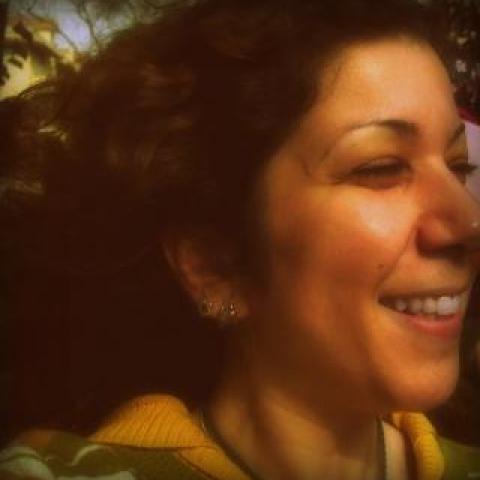Idku - a neglected town stands up against environmental degradation

Recently we visited Idku in the Governorate of Beheira – a beautiful coastal town on the Mediterranean, 35 km east of Alexandria. Idku is primarily a fishing community; the local population of 250,000 has long relied on Lake Idku – a freshwater body – and the sea for its livelihood. Additionally, its economy also relies on agriculture: Idku is famous for its guava, and residents proudly describe Idkuan grapes as having been “the finest in the world”.
Talking to Idku locals, their pride in their hometown's past glory is hard to miss - “Idku used to be Egypt’s food basket”, they tell me. But so is the bitterness over its lost potential; the neglect, violations, and loss of their livelihoods, “Idku is an orphan town no one cares about”.
Indeed, Idku seems to be the unfortunate meeting point of a confluence of short-sighted profit and corporate interest driven policies cutting across all vital sectors, combined with lack of any real and effective consultation with the local community, including the longshore and lake fishermen, farmers, and youth. From encroachments by former National Democratic Party cronies on their lake for the lucrative aquaculture business, through state-sanctioned heavy use of chemical pesticides and fertilizers in the agriculture sector, to lack of oversight and accountability for industrial pollution in canals feeding into the lake and the Mediterranean, the people of Idku have witnessed the slow and unstoppable destruction of their marine, lake, and land environment, in short: their livelihoods and economy.
Toxic sedimentation from industrial, agricultural, sanitary wastewater discharge in Lake Idku – a direct result of long-standing failed and unsustainable policies (photo by: Mika Minio-Paluello)
These factors are further confounded by evident climate change impacts: the community’s resilience to the longer and stronger seasonal wave surges is weakened by the uncontrolled raking of Idku’s sand dunes (now almost completely removed) by big-business construction contractors, changing the coastal topography and depriving the area of a natural shoreline barrier. Shifting seasons have aggravated the impacts of already declining fish populations on the vulnerable fishermen, diminishing the catch yield and fish variety. Degraded farmland is suffering from increasing salination, with 95% of the famed guava orchards seriously damaged.

Ahmed ElSadd, a lake fisherman and unionist, demonstrates his meticulously detailed hand-drawn map of the lake and the proposed solutions to its degradation (photo by: Mika Minio-Paluello)
As in most cases, the demands of the Idku community and stakeholders are strikingly clearly formulated and simple. They speak knowledgeably of the need to reform agricultural policy and reduce use of chemical pesticides and fertilizers, for environmental and legal regulation of the aquaculture sector, and propose the diversion of the discharge canals away from the lake and effective nation-wide regulation of the effluent discharge – be it industrial, agricultural, or sanitary. Yet, these demands have always fallen on deaf ears, officials remain biased to the business interests of the rich and powerful at the expense of the community.
Yet Idku remains defiant, even in the face of the Egyptian Liquefied Natural Gas Project, a massive natural gas liquefaction facility on the nearby beach. The oil operations are run by two joint ventures Rashpetco and Burullus, whose shareholders include the British BG, Malaysian PETRONAS, French Gaz de France, and the Egyptian state companies EGAS and EGPC .
Idku is fighting against the degradation of its environment by the oil companies. These companies have erected wave breakers that restrict access to viable fishing areas, and have discharged wastewater illegally into the sea causing dead mussels to wash up on the shore. The Idku community took Rashpetco to court over the discharge of its wastewater. A 2006 court ruling referring to a report by the Egyptian Environmental Affairs Agency (EEAA) found the company guilty of illegal discharge of sewage and industrial waste. And the residents are accusing the company of illegal dumping of its waste into their fields and canals.

Idku’s longshore fishermen have been carrying the brunt of the degradation of their marine environment resulting from unsustainable policies and violations by the oil companies (photo by: Mosireen)
All without any benefits to the Idku community. In addition to accountability for the pollution, the community has long demanded just reparations from the oil companies, that go beyond the cosmetic painting of a school building or annual Ramadan-time charity. Demands have included employment opportunities for its educated youth, a small pier for the longshore fishermen, upkeep and maintenance of the lake..
The oil companies’ contribution to the development of this community, all of which stopped with the revolution anyway, was charity work. We do not ask for charity, we are demanding our rights.- Idku activist
To day, these demands remain unmet. So when British Petroleum eyed Idku for an onshore natural gas processing plant, the community took matters into its own hand: it mobilized to stand up against the proposed project. Roads were blocked, a sit-in occupied the construction site, BP's office was raided and popular assemblies took place in the street. The organised local campaigning and resistance by the Idku community managed to halt BP’s plans.
No industrial project should be allowed to infringe on a natural resource.- Idku resident

One of the many graffiti in Idku voicing the community’s rejection of the proposed BP plant, painted over by BP (photo by: Mosireen)
Unfortunately, BP has not given up completely. Instead of recognising that it's not wanted, the company has moved to a new location futher east along the coast. Now the struggle moves to Mtubas in Kafr elSheikh, the new proposed site for BP’s gas plant.





